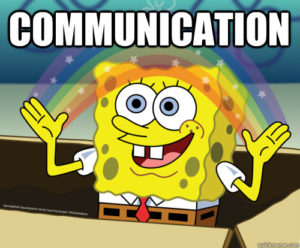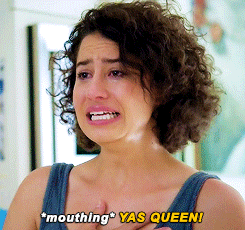As the school year winds down and finals near, stress is high and we can’t but help but hold our breath until the last final is over. But even when the stress of school comes to an end and summer officially begins, a new stresser appears: the first day of your new job or summer internship. As the start date of your summer internship nears, although exciting, can often be very nerve-wracking (speaking from personal experience here!) Here are some tips on acing that first week, and making the best first impression:
1. Soak up everything around you! Be a sponge.
One of the most important things you can do the first week of a new job is to pay attention! Absorb everything around you. Familiarize yourself with the day-to-day activities of your co-workers, as well as with the company culture, the working and communication styles of your teammates, and the problems or conflicts that the team may be experiencing internally or externally. Getting to know these facets of the workplace better right away means that you’ll be able to start your real work sooner and be more effective when you do! In order to absorb as much as possible, try to attend weekly meetings, mingle with your coworkers and ask questions. It would also be helpful to join in on the informal events, or getting lunch with your supervisor or co-workers. Showing enthusiasm about being apart of the team and an eagerness to learn more is great.
2. Don’t Overcommit
Do be wary of overcommitting. Trying to please everyone the first week may lead to a catastrophe when you start showing up late, or get too overwhelmed. It’s more valuable to get to know the ropes of your job well, in order to be highly successful at your given projects, than trying to spread yourself out too thin with other work.
3. Ask Questions!
In order to get up to speed and assimilate as quickly and efficiently as possible, you’re going to need to ask questions. People will expect this from a new hire, and will be willing to help. Taking notes and recording this new information is crucial-your brain will be on overload this week, so writing as much down as possible, although it may seem simple, is critical to success and will keep you from forgetting and having to ask again.
4. Don’t Forget to Speak Up
At the same time, don’t be afraid to contribute and add to the conversations around you. You may not know every answer to every question, but trying your best to contribute to conversations will show that you are the right hire and that you are trying your best to assimilate. Don’t be afraid to share your unique perspective or skills, which may be why you got the job! This may also come in the form of offering your help. Don’t just sit around, waiting for others to figure out tasks for you-volunteer to help on new projects, in order to show initiative and build connections with your team. Stepping up and helping out will also help you learn the ropes more quickly than sitting around and waiting to be assigned tasks.
5. Keep Transparency
Throughout the week, asking your boss for periodic meetings, rather than popping in his/her office every five minutes with a new question, may be more a productive use of both your time. In addition, keeping your boss informed about the progress of your work in these meetings, in order to check in with what you’re learning and to see if you’re on track might also be useful.
Asking questions here, like “Are there any additional tasks I should be taking on or skills I should be learning?” and “Can you give me feedback on the project I just completed?” will express your initiative and eagerness to learn. But don’t forget to listen carefully as well! Feedback will be the most useful thing you can rely on at this point, in order to grow into your new role to the best of your abilities.












